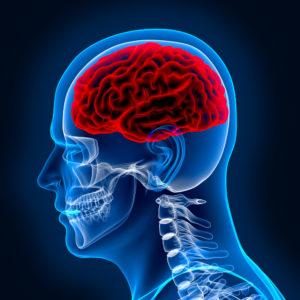The brain is the most complex computer humans are likely to every encounter. Much of how the brain works is beyond our understanding, although medical science is experiencing regular breakthroughs.
Traumatic brain injury affects different people in different ways. Much depends on the location of the brain the injury occurred, the degree of impact, and the speed in which medical attention was received.
The basic structure of the brain
It is hard to over-emphasise what an amazing organ the brain is. It governs how we move, talk, see, hear, smell and feel. It also houses our emotions, character, personality and consciousness. Our brain allows us to solve problems, make decisions and memories, and fall in love.
It truly is a remarkable organ.
The brain is made up of around 100 billion nerve cells called neurons. These neurons can transmit electromagnetic signals to each other, much like a computer.
A neuron is comprised of three basic parts:
1. the dendrite – this receives information from other neurons
2. the body – which supports and maintains the cells
3. the axon – the wire that generates the electrical charge
The brain itself is divided into four parts;
1. the frontal lobes – controls thinking, planning, organizing, problem solving, short-term memory and movement
2. the parietal lobes – interprets sensory information, such as taste, temperature and touch 
3. the occipital lobes – processes images from your eyes and link that information with images stored in memory
4. the temporal lobes – processes information from your senses of smell, taste and sound. They also play a role in memory storage.
The limbic system, located deep inside the brain structure, which includes the hippocampus and the hypothalamus, controls emotions and memories.
What happens when you receive a traumatic brain injury?
Around one million people per year visit the Accident and Emergency department following a brain injury. Although some will recover with no ill-effects, many with be left with minor to severe temporary or long-lasting personality changes and/or disabilities.
The effect of a head injury on the brain will depend on its location, the level of impact and what caused the injury to occur.
Symptoms of a traumatic brain injury can vary widely, and can include:
Behavioural
- Dis-inhibition – a loss of control of behaviour. Suffers often act inappropriately, divulging personal information too quickly, lose the ability to read social signals. They can be unpredictable, aggressive and unreliable, but due to the injury, have no idea of the affect their behaviour has on others.
- Impulsiveness – a brain injury can cause some victims to lose the ability to consider the consequences of their actions.
- Increased irritability – probably the most common side-effect of a brain injury, especially in the short-term.
Cognitive
- Memory loss – it is very common for suffers of a brain injury to experience problems with memory. In some cases, the damage is permanent, as the brain losses its ability to organise and process new information.
- Language – losing the ability to talk, read or write is immensely frustrating and it may take months of rehabilitation to regain the skills that have been lost.
- Reduced concentration
- Impaired reasoning skills
- Losing the ability to empathise with others
The impact on loved ones
For family members, having to cope with a loved one who has suffered a traumatic brain injury can be immensely painful and frustrating. Many often describe the process as like having to get to know an entirely new person.
Family finances can also be negatively affected, especially if the person who has suffered the traumatic brain injury was the primary earner.
Claiming compensation for a brain injury
If you have suffered a traumatic brain injury, you may be able to claim compensation if you can show that your injury occurred because of negligence.
Often expert medical witnesses will be required to establish the level of brain injury. At Russell Worth Solicitors, we can arrange for you to be seen by a medical professional who can not only help establish the extent of your injury, but assist you with a rehabilitation programme.
Our team understands the sensitive nature of brain injuries and will support you and your family throughout the claims process in a kind and caring manner. We will represent you robustly, ensuring you receive compensation to ease your financial concerns and help you on the road to recovery.
At Russell Worth Solicitors we specialise in personal injury claims. If you have suffered an injury because of an accident that was not your fault and would like a free claim assessment, please call us now on 0800 028 2060 or complete our Online Claim Assessment.
or complete our Online Claim Assessment.

